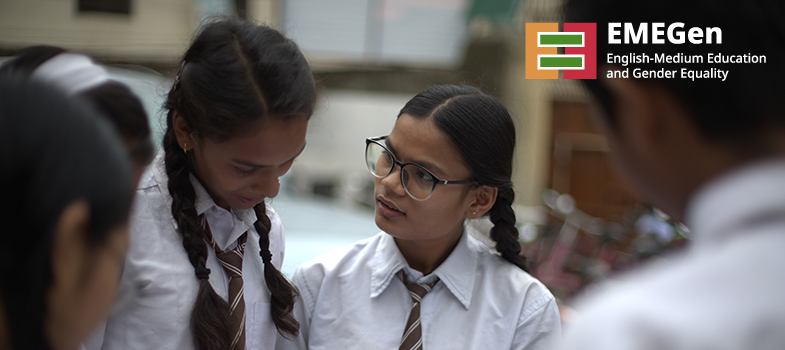OER 3 Language and gender: learning and equality in participation
8 Acknowledgements
This content has been developed by The Open University, UK, with support from the British Council.
Thanks to everyone who assisted in the authoring, production and editing of these resources, especially students, parents, teachers and head teachers in three secondary schools in Nepal and Nigeria (you know who you are!) as well as our two researchers in Nigeria, Prof. Amina Adamu and Prof. Aishat Umar.
Every effort has been made to contact copyright holders. We will be pleased to include any necessary acknowledgement at the first opportunity.
Images
Girls in school: Courtesy of the EMEGen Project (British Council and The Open University)
Student writing: Courtesy of the EMEGen Project (British Council and The Open University)
Writing in English: Courtesy of the EMEGen Project (British Council and The Open University)
Text
Table of gender responsive language practices:Text Source: Uworwabayeho, A; Bayisenge, J; Katwaza, E; Umutoni, J; Habumuremyi, J.& Rwabyoma, A. (2018). National Gender-Responsive
Teacher Training Package. Ministry of Education of Rwanda. From Gender-Responsive Pedagogy. A Toolkit for Teachers and Schools-2020, Forum for African Women Educationalists (FAWE) ungei.org. Available from https://www.ungei.org/sites/default/files/Gender-Responsive-Pedagogy-Toolkit-Teachers-Schools-2020-eng.pdf [Accessed 21/03/24]
Online ‘Digital Divide’ Leaves Girls Behind: Lynn, B. (2023) 'Report: Online ‘Digital Divide’ Leaves Girls Behind' learningenglish.voanews.com. Available from https://learningenglish.voanews.com/a/report-online-digital-divide-leaves-girls-behind/7289277.html [Accessed 22/03/24]
All videos courtesy of the EMEGen Project (British Council and The Open University)
